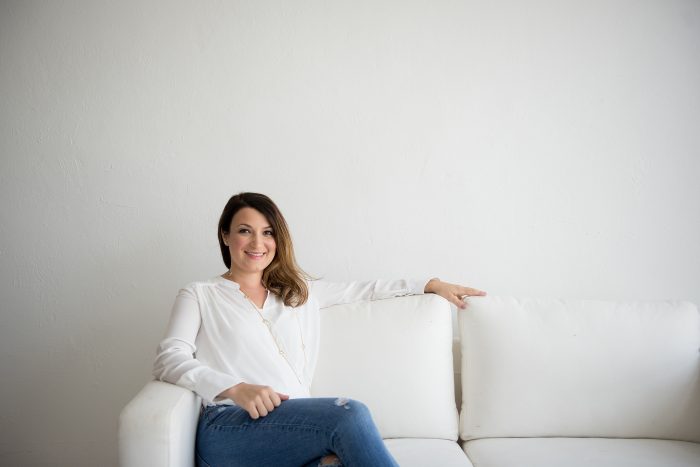
“Education is what survived when what has been learned has been forgotten.”
– BF Skinner
I get asked a lot of questions. Some I can answer easily, others I have to think really hard about. Most of the time, I research the answers to these questions, and every now and again I’m left confused and speechless. I’ve decided to share with you some of the questions I’m most frequently asked by subscribers, clients, radio hosts, and even some of my friends. Here you’ll find several of these questions, along with my answers. If you’ve been pondering questions related to these topics and just haven’t had the time to ask a professional about them, now’s your chance to get some answers.
1. How can I still be an individual in a committed relationship?
This is one of my favorite questions and something that I see as essential to the success of every individual and relationship. Many people think they need to lose their individuality when they start a committed relationship. But the truth is, we should always aim to balance our need for togetherness and our need for individuality, instead of losing who we are in our relationships. There are a few things you can do to maintain your individuality in a committed relationship. One of the most important ones is being more self-aware. Start paying attention to your own values, opinions, and beliefs, and remember that they don’t have to dependent on other people, even if you are in a committed relationship with someone whose ideas differ from yours. When you have a clear sense of individuality in your committed relationship, you can have open and honest conversations with the person you care about while maintaining your separate self, knowing that it’s okay to do that. It’s important to always keep in mind how you can manage your own voice while also allowing your partner to be who they want to be, too. It’s all about giving yourself permission to be yourself, know yourself, and act with your own values in mind, all while remaining connected to your partner.
2. What can I do to be happier on a daily basis?
There are a few small things you can do daily to be happier 1. Take some action: Change the situations that upset you; and if you can’t, change your perspective. 2. Know that you’re in charge of yourself: Choose how to deal with each issue or problem that arises in your life, instead of mindlessly reacting to it. 3. Put yourself first: Give up the idea that you have to live your life the way others say you should, and start making decisions based on what you want. 4. Control your thoughts: Remember that you can create a physical and emotional reaction with just your thoughts. Whether you’re aware of them or not, your thoughts usually come before your emotions; so by maintaining control of your thoughts, you also maintain control of your feelings. 5. Live in the present: Bring yourself into the present moment instead of worrying about the future or thinking about the past. You, not anyone else, are in charge of yourself and your happiness!
3. What can I do to help with my daily anxiety?
The simplest answer to this question is to regularly put yourself in situations that make you anxious, so you can gain the self-confidence that comes with knowing you can manage yourself under challenging circumstances. This is a big one, because people usually do the opposite; they avoid situations that make them anxious, which only exacerbates their anxiety.
Your efforts to deal with anxiety have a lot to do with the reasons you’re experiencing the anxiety in the first place; so it’s be a good idea to figure that out, too. Everyone deals with anxiety differently, and the way you do it is likely to change from situation to situation. One similarity I do tend to see among people who manage their anxiety effectively is that they have a strong sense of self, are generally confident, and don’t’ tend to rely too heavily on other people or circumstances.
Some simple, everyday things that can help you deal with anxious symptoms include breathing exercises, vitamins (B6 and Iron), regular exercise, healthy eating, and meditation. However, if you’re experiencing chronical anxiety, it’s important to start seeing a professional.
4. What advice can you give to keep a marriage strong?
To answer this question, I borrow from Dr. John Gottman’s 30+ years of research on happy couples. 1. Seek help early. The average couple lives unhappily for far too long. 2. Edit yourself. Couples that avoid saying every critical thought when discussing touchy topics are consistently the happiest. 3. Soften your “start-up.” Bring up problems gently and without blame. 4. Accept influence. A true partnership occurs when both husband and wife accept influence from one another. 5. Have high standards. The lower the level of tolerance for bad behavior at the beginning of a relationship, the happier the couple will be down the road. 6. Learn to repair and exit the argument. Successful couples know how to exit an argument. After a fight, they repair by using attempts that include changing the topic to something completely different, using humor, saying a caring remark, establishing common ground, backing off, and offering signs of appreciation for each other along the way. 7. Focus on the bright side. When discussing problems, successful couples make at least five times as many positive statements to and about each other and their relationship as negative ones.
5. How can I get over the fear of having another panic attack?
This is something that happens over time. Having a panic attack is a very scary experience, so don’t judge yourself for being afraid of having another one. Something that may help is to come up with a plan for what you might do if a panic attack does strike. For example, you may decide to concentrate on your breathing at the first sign of an oncoming attack. You could try to bring yourself into the present moment and talk yourself down by saying things like, “This will pass,” “I’m going to be okay,” and “I’m not dying”. When you have the tools to get through the panic and know you can handle yourself through it, you’re better prepared and less fearful. However, if you’re having regular panic attacks, it’s a good idea to seek professional help.
6. What can I do now, while I’m single, to have better relationships in the future?
Being single can be the perfect opportunity to develop a sense of yourself and get to know your boundaries, likes, and dislikes. The more you know yourself, the more likely you are to create a marriage that lasts. So instead of trying hard to be in a relationship, use this time to figure yourself out and get intimate with your own needs and wants. Start creating a life you want for yourself; that way, when a partner does come along, he or she can be there to enhance your life, not make your life. Remember that in order to have a successful relationship with another person, you need to be confident in who you are as an individual. You need a solid inner self that can only be changed from within, not according to outside influences
There you have it: my most commonly asked questions, along with my most well-thought-out answers. If you have a burning question you’ve been meaning to ask a professional, feel free to ask me. If I can’t answer it, I promise to point you in the right direction.
Did you enjoy reading this article?
Once a week I send out a newsletter with new articles and unique content for readers. It is my way of staying in touch with you and giving you free advice based on some important topics.
Click here to sign up for my newsletter.
Talk soon,
Dr. Ilene
Article edited by Dr. Denise Fournier





Thank for writing such a good article I really like it! It all makes sense. Thanks Dr. Ilene.
As a mother of four my children’s have different ages! and a wife😲 this is going to help me a lot!
Thank you Rosalina! I am glad that you liked it. 🙂